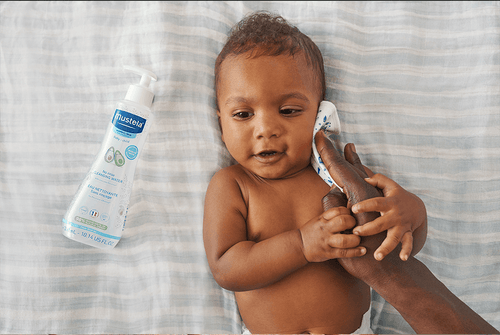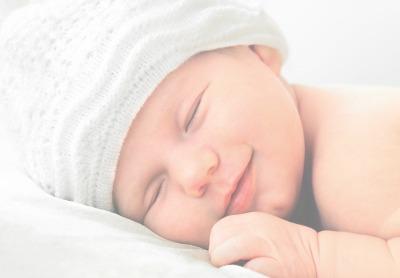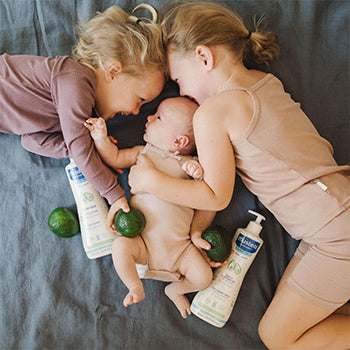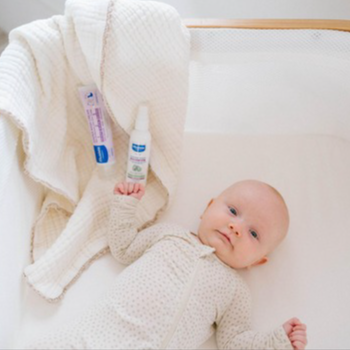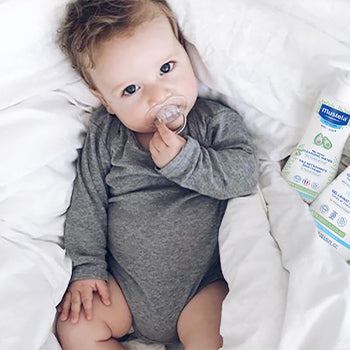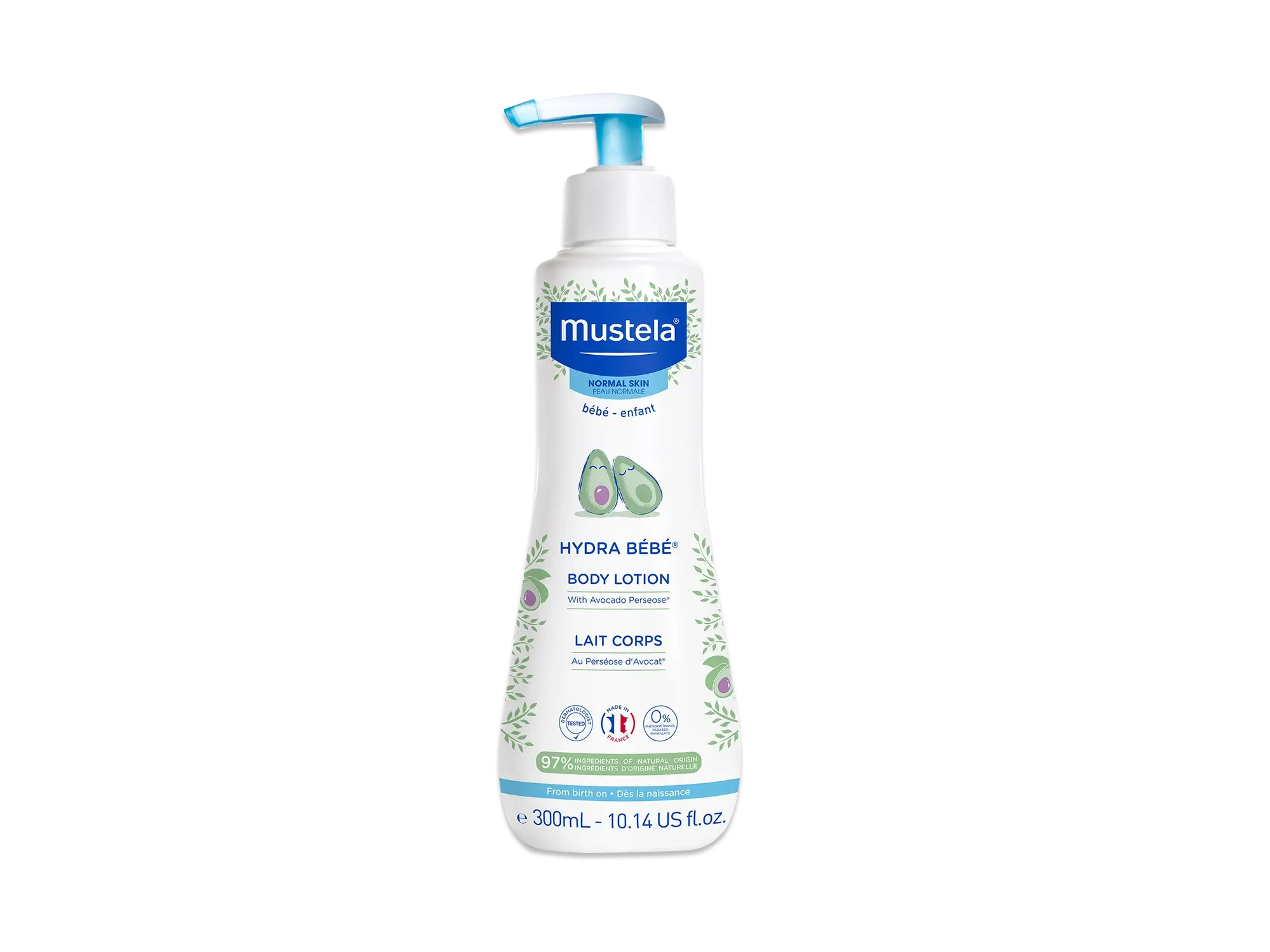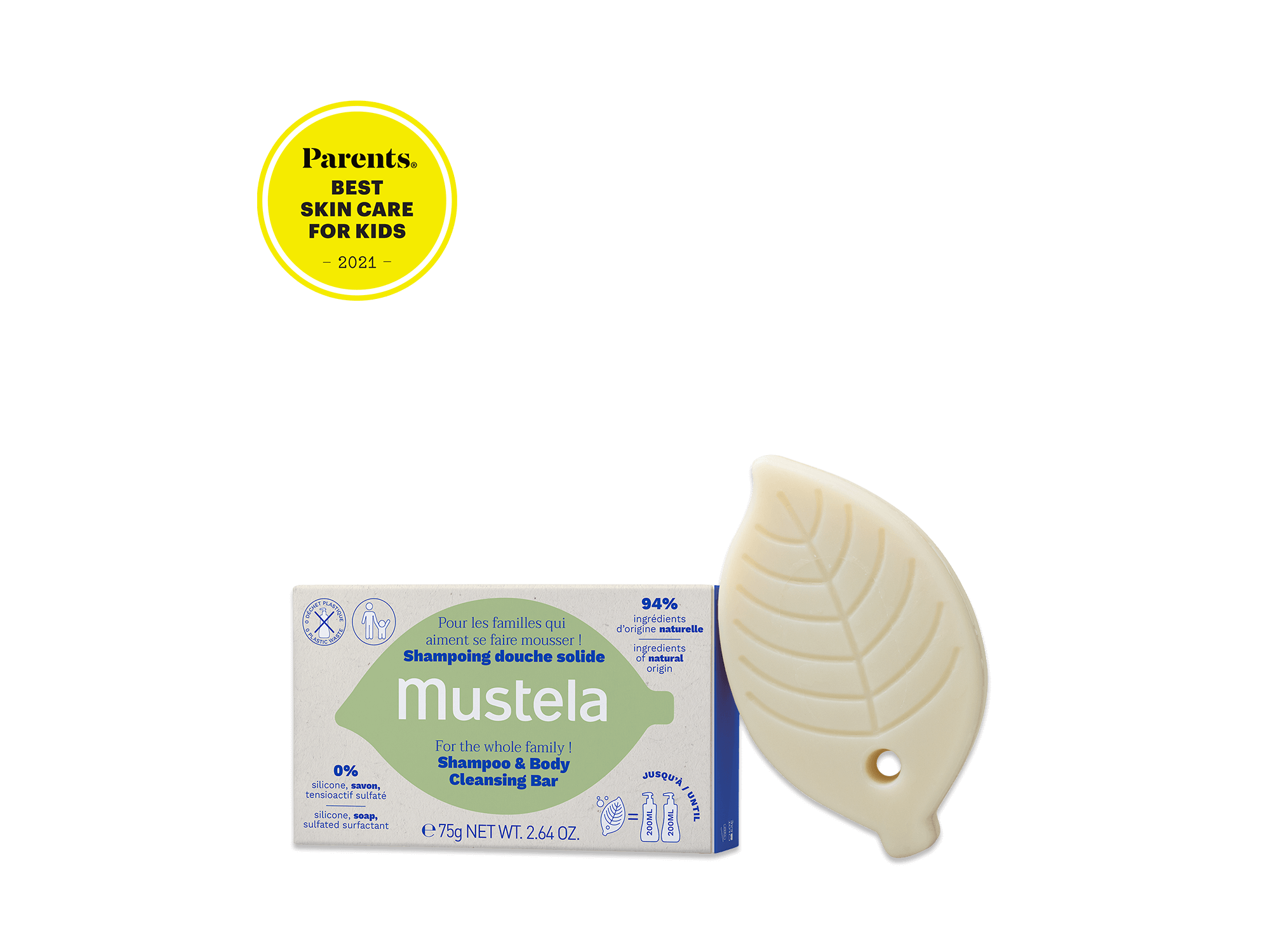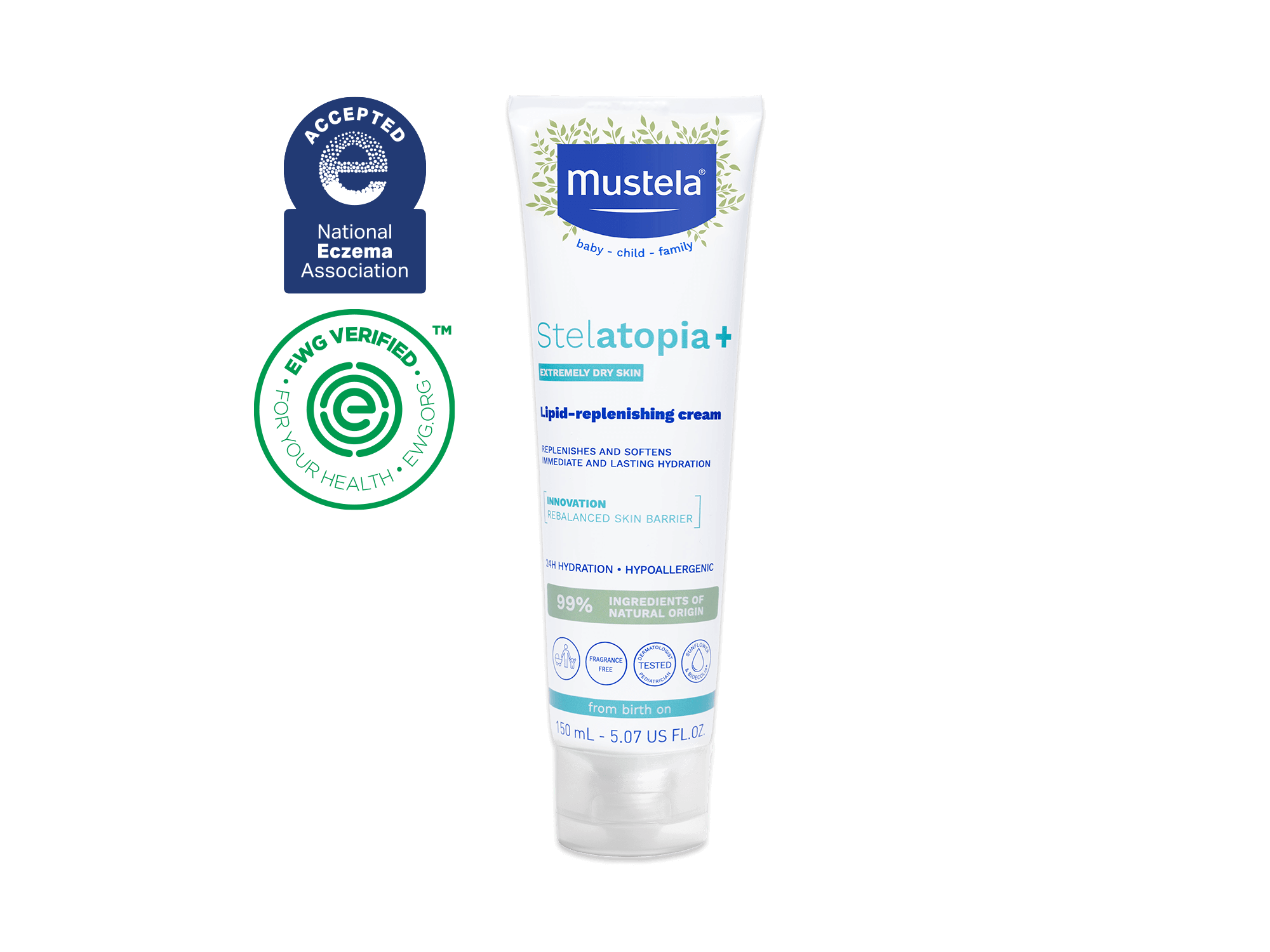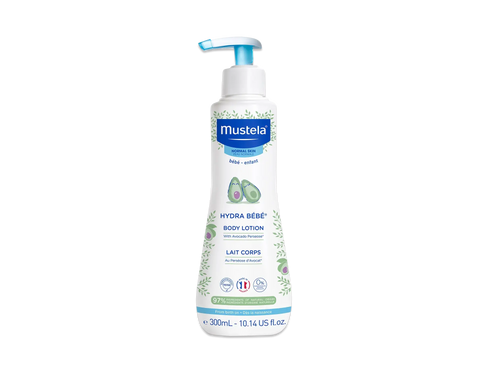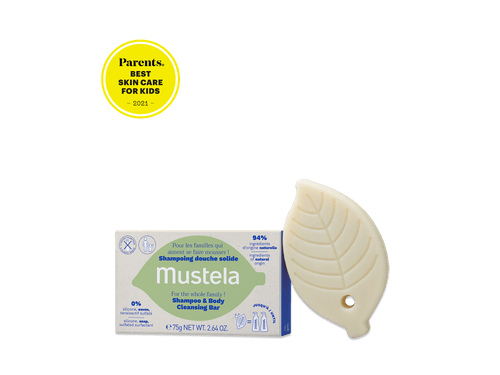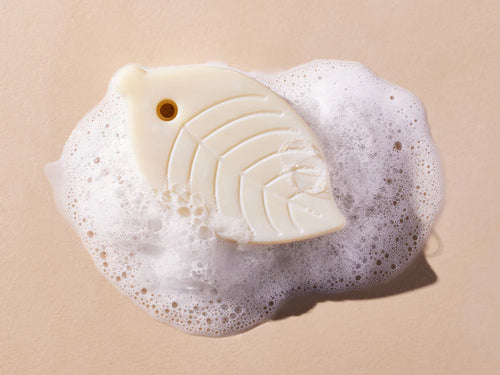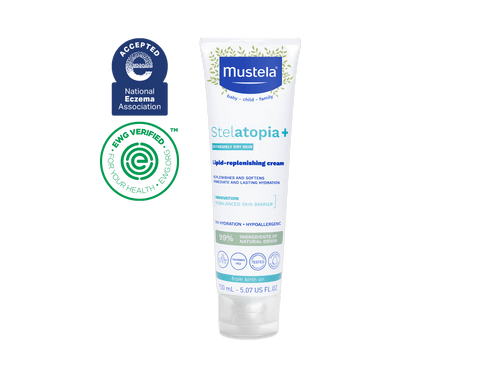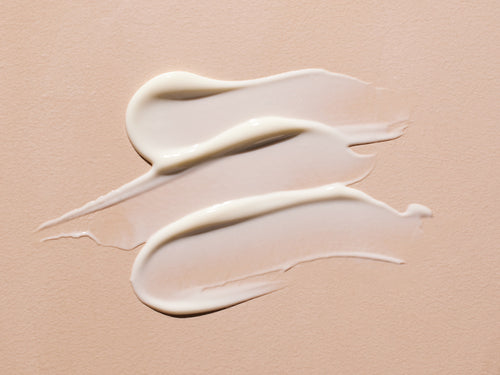For the first few weeks of life, babies sleep a lot! Unfortunately, the hours your newborn sleeps may not feel like much. This is due to their natural tendency to sleep for only a few hours at a time.
While this intermittent sleep schedule may work for your baby, it likely doesn’t work for you or your partner. To help you through the first few months of your newborn’s life, we’ll show you the 16 best tips to get your little one to sleep better so you can, too.
Table Of Contents
- How Much Do Newborns Sleep?
- The Importance Of Sleep For Your Baby
- Safe Sleep Practices
- 16 Tips To Help Your Newborn Sleep Better
How Much Do Newborns Sleep?

On average, a newborn sleeps between 14 and 18 hours a day. When your little one isn’t sleeping, they’ll feed, have their diaper changed, and maybe take a bath, but then it’s right back to dreamland.
As you can see, newborns will sleep during most of their first few months of life, but that sleep usually comes in short bursts. This happens because newborn babies need to eat at least every three hours.
This often results in an ongoing cycle similar to the following:
- Your baby wakes up after a three-hour nap and wants to eat.
- After eating, your baby may stay awake for a little while.
- Soon, it’s right back to sleep for another two to three hours.
Keep in mind that newborn sleep looks a bit different than the sleep you’re used to. While baby’s off in dreamland, their eyelids may flutter, they may twitch, or they might even cry a little.
This is normal and doesn't mean that they’re waking up — so if you see them doing these things, you can most likely just let them be.
But if they’re sleeping too long — if it’s been three hours or more between feedings, for example — you’ll want to wake them up. Getting enough nutrients is vital for growth and development at this early stage.
On the other hand, if for some reason your baby doesn’t sleep well at any time during the cycle, they can become fussy and cranky. Inadequate sleep can affect how your little one eats, interacts, and even sleeps during other parts of the day or night.
The Importance Of Sleep For Your Baby

Good, quality sleep is absolutely critical to your baby’s health and well-being. Your newborn’s tiny body is still adjusting to life outside the womb while also working hard to develop and grow.
Their endocrine system is working on overdrive to replace the hormones that were once supplied by mommy, while their immune system is working hard to fight off brand-new germs.
The bulk of that activity happens while your little one is fast asleep. That’s why it’s essential to do what you can to help your newborn sleep better.
Safe Sleep Practices
Before we get to tips that will help your little one sleep better, we need to say a word about safe newborn sleep.
The American Academy of Pediatrics (AAP) has recently updated its safe sleep recommendations with a lot of great advice for new parents. Here are some highlights.
Say No To Bed Sharing
Although it might seem sweet to share a bed with your baby, doing so is dangerous. You could roll over in your sleep and accidentally harm them, or their airflow could be blocked by a blanket, pillow, or too-soft mattress.
Say Yes To Room Sharing
While bed sharing is a no, the AAP says that room-sharing is a resounding yes. They recommend room sharing for at least the first six months.
This has several benefits. Since babies eat every few hours, having them in your room will make it convenient for feedings. Also, you can keep an eye on them to make sure there’s no problem (a full diaper, a fever, or anything else that can come up).
On top of that, according to the AAP, room sharing can decrease the risk of Sudden Infant Death Syndrome (SIDS) by as much as 50%.
Remember That Back Is Best
Putting your newborn to sleep on their back is the safest position for them and makes SIDS less likely.
Opt For A Firm, Flat Sleep Surface
You might worry that your baby’s mattress isn’t comfortable, but a firm mattress is a must because it’s safer for them. You’ll know their mattress is firm enough if it doesn’t incline more than 10 degrees when you put them down.
Keep Blankets Out Of The Crib
Your baby’s crib or bassinet should be free of any loose blankets, pillows, sleep bumpers, stuffed animals, and other toys. If your little one happened to roll onto one of these things, it could block their airflow.
Don’t Over-Bundle
Be careful not to put too many layers on your baby when you put them down to sleep, as this can cause them to overheat. In addition, you’ll want to skip the hat while they’re indoors.
Overheating can increase their risk of heat rash and even SIDS.
Use Approved Sleep Surfaces Only
If the spot where your baby is snoozing isn’t specifically designed for sleep, you’re going to want to move your sleeping baby right away. Car seats, infant loungers, feeding pillows, your couch: None of these are safe places for your newborn to catch those zzzs.
If you see their lids getting heavy, move them to the safety of their crib, bassinet, or play yard.
16 Tips To Help Your Newborn Sleep Better
Now for the part you’ve been waiting for: our 16 newborn sleep tips! We’ve put together some easy things you can do to help your little one (and you) get better, more consistent sleep.
1) Keep Daytime Naps Short
Limit the length of your baby’s naps to two or three hours at a time. Anything longer could affect their nighttime sleep. If a nap is approaching the two-and-a-half hour mark, wake your baby, feed them, play with them for a few minutes, and then put them back down for another nap.
By waking your baby every few hours, you are encouraging regular feeding habits, which will help your little one sleep better during the day and night.
2) Feed Your Baby Right Before You Go To Bed

Moms need sleep too, but your baby’s many needs will likely make this difficult. If you’re breastfeeding, it’s going to be even harder. To ensure that you get at least a few hours of quality sleep, we suggest feeding your baby right before you go to bed.
With this last feeding, it’s possible (or even probable) that your little one will be asleep. This is called “dream feeding.” A dream feed will fill your baby’s tummy and give you a few hours of precious uninterrupted sleep.
3) Swaddle Your Baby At Night
Your newborn spent nine months wrapped up tight in your womb, a feeling that most newborns continue to enjoy even after birth. You can help your baby feel more comfortable by swaddling them in a blanket.
This helps with the Moro Reflex — something you’ve probably experienced yourself. It’s when you suddenly feel like you're falling and your body jolts awake. This can happen to babies at bed or nap time, and swaddling helps calm them by keeping their legs and arms safely tucked.
Wrapping your little one up in a swaddle will also help keep them warm at night. Just remember when you swaddle your little one, always put them down on their back, and don’t wrap them so tightly that they can’t move their hips or can’t breathe easily.
Once your baby looks like they’re ready to flip over (typically between two and four months), trade your swaddle for a sleep sack.
4) Gently Massage Your Baby Before Bed
While feeding your newborn right before you go to bed will help calm your baby, sometimes it just isn’t enough. When your newborn isn’t in the mood to settle down, try giving them a gentle massage immediately following feeding time to help your baby relax and fall asleep.
We recommend using Baby Oil as you massage your newborn’s shoulders, arms, chest, back, legs, and feet. The soothing scent will comfort, calm, and relax your baby so that they can fall asleep faster and stay asleep longer.
5) Moisturize Your Newborn’s Skin
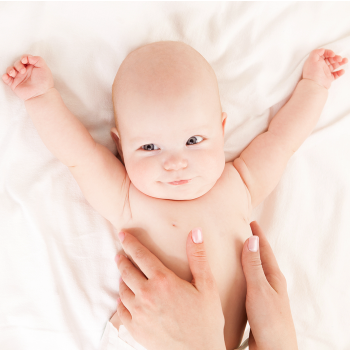
When your little one’s skin feels soft and smooth — and doesn’t itch from dry spots or eczema — they’ll sleep better and wake up less often. We recommend applying lotion daily for long-lasting protection against itchy, dry skin.
If your newborn has eczema-prone skin, we recommend our Stelatopia Emollient Cream or Balm to help keep your newborn comfortable and flare-up-free.
6) Add Some White Noise
Even the slightest noise can disturb your newborn’s sleep. Unfortunately, noises happen even if you’re super careful. The phone might ring. A floorboard might creak. The neighbor’s dog might bark.
Thankfully, you can cover up disruptive sounds by adding some white noise to your baby’s environment. White noise is a specific broadband sound that includes all audible frequencies. It’s both neutral and consistent.
There are several white noise machines on the market to choose from. But if you don’t have one, you can always improvise, like with a fan. Place a fan in your baby’s room and set it to run on medium for just the right amount of white noise.
Note: Be sure to point the fan away from your baby’s crib so they don’t get chilled by the breeze.
7) Change Your Baby’s Diaper Correctly
At night, your baby will most likely wake, feed, and then go right back to sleep (often while still feeding). You don’t want to disturb that pattern by changing your newborn’s diaper at the wrong time.
We recommend changing your little one’s diaper before you settle down to feed so that once your newborn has fed, you can put them to sleep right away without waking them.
When your baby wakes up to feed, first take care of the diaper by following these steps:
- Remove the dirty diaper
- Clean the diaper area with wipes
- Apply a bit of Mustela Diaper Rash Cream 1 2 3
- Put on a clean diaper
- Re-swaddle your newborn
Once the above steps are done and your little one is wrapped snugly in their swaddle, proceed with your feeding and sleeping routine.
8) Bathe Your Baby Before Bed

Another tip for helping your newborn sleep better is to bathe your little one before bed. After a warm bath, your baby’s body temperature will drop a few degrees, signaling that it’s time for sleep.
But keep in mind that too-frequent bathing could dry their skin out, especially during winter months, so it might not be part of your daily bedtime routine. Unless there’s a pressing reason, opt for bathing your newborn about three times a week.
When it’s time for the bath, cleanse them in the tub using baby-safe products like Mustela Gentle Cleansing Gel and Foam Shampoo For Newborns.
After the bath, put a clean diaper on your baby, give them a gentle massage, feed them, and then put your little one down to sleep.
9) Let Your Baby Fuss Around For A Little Bit

As concerned parents, we have a tendency to rush into our baby’s nursery at the slightest noise from the crib. This can be a mistake. Babies will often wake up and coo, babble, or fuss a bit, and then go right back to sleep. Sometimes babies even cry while they’re still asleep.
If you hear your baby fussing, wait a few minutes before picking them up to avoid disturbing their natural sleep pattern.
10) Keep Your Baby’s Room Dark And Temperate
To help your baby sleep better at night, keep your little one’s room as dark as possible. Draw the curtains or close the blinds at night. To be extra safe, remove all sources of light, including digital clocks and glow-in-the-dark toys and decorations.
As for the temperature, set the thermostat between 68 and 72 degrees Fahrenheit, which is considered “just right” for little ones.
11) Consider A Pacifier
You might want to think about getting your baby a paci in order to sleep better. Using a pacifier is thought to decrease the risk of SIDS because it helps babies stabilize their breathing and heart rate when sleeping.
If your baby is bottle-fed, they can use a pacifier right away. If they are breastfed, however, doctors suggest holding off until three to four weeks so there’s no nipple confusion that will interfere with their eating patterns.
When giving your little one a pacifier, be sure to keep in mind the following tips:
- Get the right size for the right age
- Ensure it’s clean
- Make sure it’s one piece and doesn’t have any attachments to avoid any choking hazards
Generally, this is a short-term solution for better sleep as your newborn is learning the ropes. Most babies wean off the paci between six months and three years.
12) Put Your Baby To Bed Drowsy But Awake
When you put your little one down while they’re drowsy yet still awake, it gives them a chance to learn to fall asleep on their own.
Sure, it’s nice for them to nod off in your arms, but that’s not going to be a great long-term solution for quality sleep. Your little one may become dependent on your being there and may fuss if they later wake up and find that you’re gone.
13) Look For Sleep Cues
If you’re going to put your baby to bed drowsy but awake, you’ll need to stay alert to their sleep cues. Here are some of the most common ways your baby may communicate that they’re ready for some shuteye:
- Yawning
- Staring or becoming quiet
- Fussing
- Rubbing their eyes
- Grimacing or making funny faces
- Clenching their fists
- Waving or jerking their limbs
Once you’ve deciphered their cues, then you’ll know when they’re ready to go down for bed or a nap.
14) Don’t Keep Them Awake Too Long
It’s tempting to think your baby’s sleep will improve if you keep them up longer, but that can lead to overtiredness and make their sleep issues even worse.
One way to prevent overtiredness is to pay attention to your baby’s wake window, the amount of time between naps. Wake windows help you know when to look for sleep cues.
15) Read A Book
It’s never too early to read to your baby. A study in the International Journal of Environmental Research and Public Health even found that preterm infants in the NICU experienced positive effects from being read to.
So choose a favorite book, pull up a chair, and lull your little one to sleep with a bedtime story.
16) Try A Baby Swing To Help Your Newborn Sleep Better
When your baby was in the womb, rhythmic movements lulled them to sleep. The same movements can be used to help your baby wind down and start to feel drowsy outside the womb.
An easy way to recreate those back-and-forth movements is with a baby swing. Find a speed that calms your baby, and then place your little one in the swing. When their eyes begin to get heavy, take them out and put them in a safe sleep environment, like a crib or bassinet.
As we’ve said, you never want your baby to sleep in a swing or anything that isn’t intended for sleep, as doing so can be dangerous. If they do fall asleep while swinging, move them to their crib as soon as possible, and place them on their back so they can dream safely.
Find The Sleep Tips That Work Best For Your Newborn
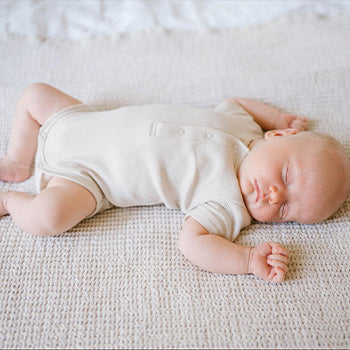
Every baby is unique. What works for some won’t work for others. That being said, not all of the tips on this list will help every newborn sleep better. But with a little experimentation, you can find the tips and tricks that work best for you and your little one.
One thing is for sure, though: Babies will sleep more comfortably if their skin is soothed. Mustela products, from our Organic Hydrating Cream With Olive Oil And Aloe and Melting Massage Balm to our fragrance-free Organic Water Wipes, will keep your baby’s skin hydrated and happy.
With the Mustela suite of skin-soothing products, soon, your baby will be sleeping quietly through the night, allowing you to have a peaceful night’s sleep as well.

